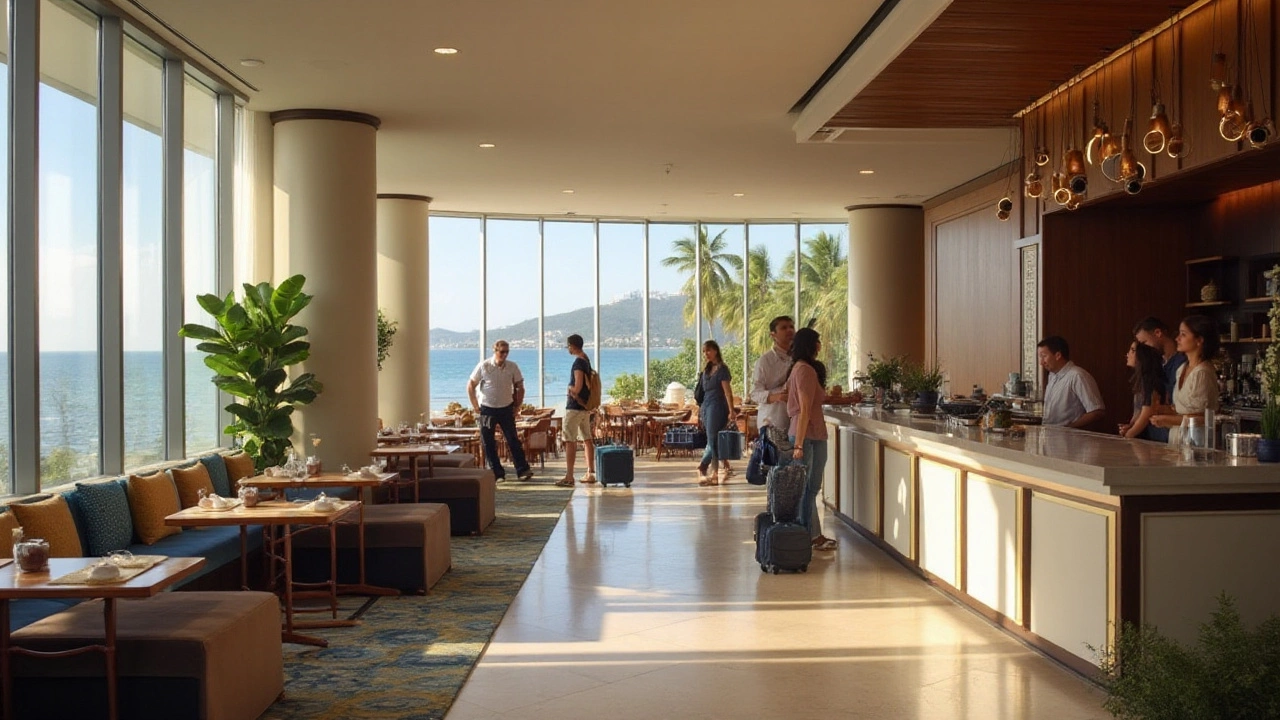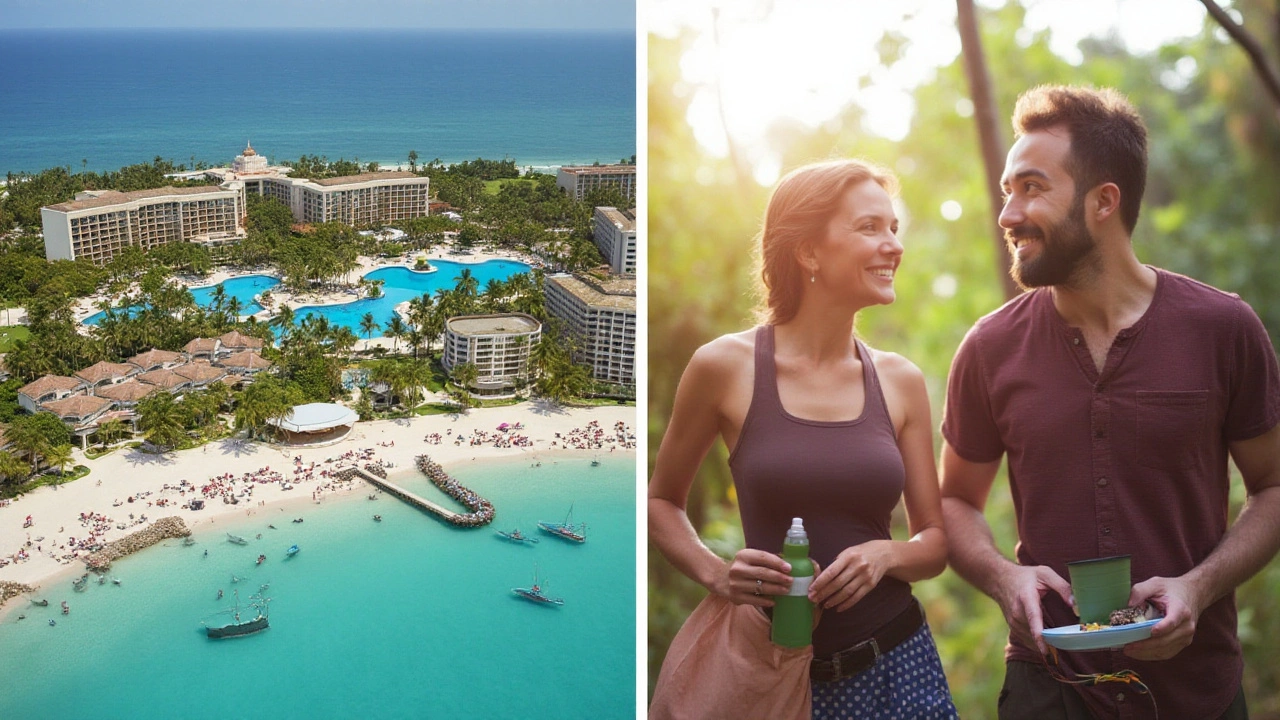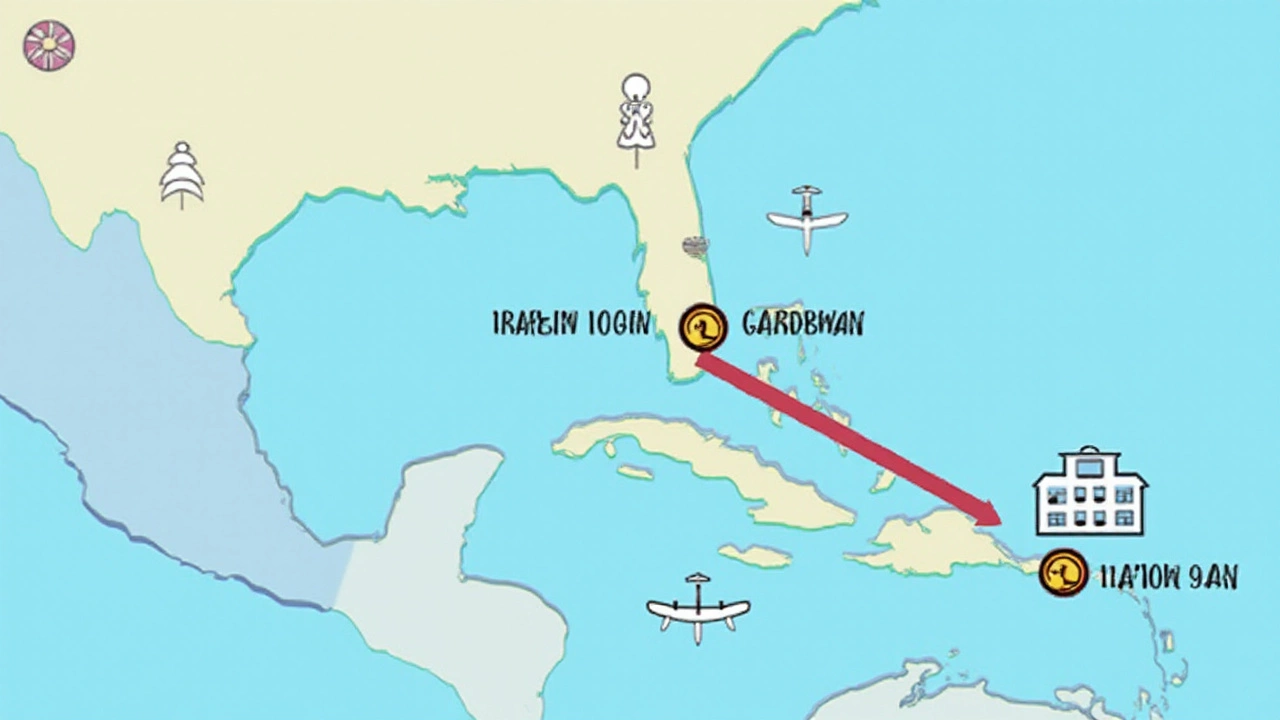Exploring the Absence of All-Inclusive Resorts in the U.S.
 Dec, 23 2024
Dec, 23 2024
The concept of an all-inclusive resort conjures images of sunny beaches, unlimited cocktails, and stress-free days. These havens promise a variety of amenities bundled with food and drink, demanding nothing more from the guests than to relax. However, when looking for such experiences in the United States, travelers often notice a conspicuous absence. Why might this be?
As appealing as the all-inclusive model is, several unique challenges prevent these resorts from proliferating across American landscapes. Economic factors, regulatory constraints, and cultural preferences all play pivotal roles. Understanding these elements can assist curious travelers in their search for the ideal getaway, whether domestically or abroad.
- Understanding All-Inclusive Resorts
- Potential Barriers in U.S. Market
- Cultural and Economic Influences
- Exploring Alternative Vacation Options
Understanding All-Inclusive Resorts
When we speak of all-inclusive resorts, the allure mostly revolves around the simplicity and peace of mind they offer. These establishments provide guests with a single pricing model that includes accommodation, meals, drinks, activities, and entertainment. This model has flourished in locations such as the Caribbean and Mexico, where tourists flock to escape the daily grind and experience leisure without the hassle of constant decision-making. The primary appeal lies in this worry-free vacation, where guests can relax knowing everything is covered. An interesting fact is that many of these resorts are strategically located in self-contained areas, maximising guest privacy and safety while offering a wide array of on-site amenities.
The roots of the all-inclusive concept can be traced back to the mid-20th century with Club Med as one of the pioneers. They introduced a novel way for people to experience holidays without financial surprises. This model focuses on providing a holistic experience, catering to a variety of tastes and needs, ranging from gourmet dining experiences to adventurous activities like scuba diving and zip lining. Such a package offers great value for many consumers, simplifying budgeting and reducing the stress associated with traditional travel planning. Renowned travel writer Paul Theroux once noted,
"The greatest reward and luxury of travel is to be able to experience everyday things as if for the first time"—a sentiment echoed by those who cherish all-inclusive resorts for their ability to wrap every facet of travel into one grand, unified experience.
Many all-inclusive options cater specifically to families, couples, or even particular interests such as wellness retreats or sports-centered vacations. This specialization allows travelers to tailor their experiences. For instance, families with young children might prefer resorts with kid club features and water parks, while honeymooners may be drawn towards adults-only properties offering secluded beaches and luxurious spa treatments. Interestingly, the all-inclusive industry has shown an impressive capacity for adaptation and innovation, incorporating sustainable practices and local cultural elements to enhance the guest experience. A well-curated all-inclusive resort will not only provide food and shelter but will immerse guests in the local culture through themed nights, traditional cuisines, and regional excursions.
The numbers tell an intriguing story as well. According to a recent study, the global all-inclusive resorts market is estimated to grow at a CAGR of nearly 4% over the next decade. This suggests a rising consumer interest in this mode of holidaying, despite challenges posed by economic fluctuations and changing travel patterns. One prevailing reason for this growth is the increasing preference for experiential travel among millennials and Gen Z, demographics that value experiences over material goods. The industry has responded by offering more personalized services, tech-driven convenience, and eco-friendly lodging options, drawing in travelers seeking both luxury and responsible tourism. These efforts reflect the industry's broadening appeal across various market segments, ensuring its relevance in a rapidly evolving travel ecosystem.

Potential Barriers in U.S. Market
While the allure of all-inclusive resorts is undeniable, there are specific reasons why such establishments have struggled to establish themselves within the vast and varied landscape of the United States. A notable factor is the economic structure that dominates the American tourism industry, which is largely designed around independent and diverse service providers. Unlike regions where all-inclusive models thrive, such as the Caribbean or some European countries, the U.S. possesses a broad spectrum of destinations with different local businesses contributing to the tourism economy. From attractions and restaurants to lodging and transport, these are often separate entities. This separation means that bundling everything under one roof may not only be economically challenging but might also lack appeal to tourists seeking varied experiences.
Regulatory factors further complicate the matter. U.S. states have diverse laws regarding liquor licenses, employment, and taxation, which can deter the consolidation efforts that make all-inclusives financially viable. Each state, with its distinct legal framework, requires custom approaches that can increase operational costs and complexities for businesses keen on adopting the all-inclusive model. Given these hurdles, many companies opt instead to focus on localized hospitality models that are easier to manage and predict. According to a 2022 report by the American Resort Development Association, "Operating all-inclusive resorts across multiple jurisdictions in the U.S. involves regulatory navigation which can be both time-consuming and financially demanding."
Besides, consumer behavior in the U.S. shows a significant inclination towards autonomy and freedom when it comes to vacationing. Many American travelers favor the idea of personalized itineraries where they can choose different dining experiences, try unique local activities, and explore off-beaten paths at their own pace. This inclination towards bespoke travel not only aligns with the American spirit of individualism but also caters to the experiential boom that sees tourists actively seeking authenticity over convenience. This trend challenges the very core of the all-inclusive format, which, while convenient, can sometimes be perceived as limiting in scope and adventure.
Lastly, the sheer size and geographic diversity of the United States make it difficult to implement a one-size-fits-all solution for resorts. From the bustling streets of New York to the serene coasts of California, each location offers distinct attractions and amenities that might not fit neatly into a pre-determined package. The local tourism boards and businesses often capitalize on this diversity, promoting unique experiences over homogenized vacation packages. This approach not only supports the local economy but also highlights the richness of American landscapes and cultures.

Cultural and Economic Influences
As one examines the cultural and economic landscape of the United States, it's clear that several factors impact the presence, or lack thereof, of all-inclusive resorts. In countries like Mexico, the Caribbean, and numerous European destinations, this model thrives due to differing vacation habits. In the U.S., individuals often seek travel experiences that emphasize exploration and multiple activities, encouraging the rise of à la carte travel rather than bundle deals. Americans typically value freedom of choice in their vacation plans, preferring to curate each aspect independently. This reflects a broader cultural ethos that leans towards personalization and a unique travel narrative.
Economically, running an all-inclusive establishment in the U.S. faces high logistical and staffing costs, also around land acquisition and zoning regulations that complicate large-scale resort developments. Legal constraints surrounding an abundance of amenities and unchecked consumption further deter investors. Local businesses often view these resorts as competition, lobbying against them to protect regional economies. Small to medium enterprises argue that these inclusive packages could diminish the potential spending of tourists at independent shops, restaurants, and entertainment venues, crucial to local economic stability.
Several experts consider these economic arguments exacerbated by a tourism model that favors prestigious urban experiences over leisurely stays. For instance, a study by the American Hotel & Lodging Association found that U.S. visitors value diverse interactions and typically center vacations around cities, exploring surrounding areas through day trips. Providing context, travel analyst Lisa Flaherty notes, "Travelers in the U.S. are often more into experiencing local culture than staying put in a single location, which is quintessential to the all-inclusive experience elsewhere."
Despite these factors, some argue there's room for growth if perceptions shift. Drawing evidence from international markets, all-inclusive resorts often promise security and predictability in costs, attractive for families and young travelers. A potential exists within coastal regions and expansive resorts, but balancing this with U.S. consumers' preference for diverse, immersive experiences continues to present a delicate challenge. Planners and entrepreneurs interested in this space must innovate ways to blend cultural expectations with the allures of all-inclusive concepts. Such efforts might gradually nurture these resorts on American soil, changing longstanding vacationing traditions.

Exploring Alternative Vacation Options
Although the United States doesn't have a wide variety of all-inclusive resorts, it more than compensates with other enticing vacation options. Travelers often find themselves charmed by distinctive local experiences, which can offer just as much joy and relaxation. For those who want the convenience of a vacation where everything is arranged, there are alternatives that can provide a similarly worry-free experience.
Venture into the realm of specialty lodgings, where everything from dude ranches to family resorts with bundled packages offer unique stays tailored to specific interests. Many dude ranches in states like Colorado and Montana provide guests with an immersive cultural experience which includes horseback riding, hiking excursions, and hearty meals that capture the spirit of the Old West. These packages offer seamless coordination similar to all-inclusive, all while allowing guests to engage in enriching activities without an a-la-carte financial burden.
Another fabulous alternative lies in cruise vacations, which do operate extensively from U.S. ports. Cruises offer a comprehensive experience with meals, activities, and entertainment included in one price. They whisk travelers away to different destinations while maintaining the all-encompassing care typical of all-inclusive resorts. Aboard a cruise, travelers enjoy a rhythm of exploration and relaxation that patrons find incredibly rewarding. Not coincidentally, this similarity to the resorts we're discussing could be why cruising ranks high in popularity among American tourists.
Traditional hotels and resorts have also begun to offer inclusive packages. Consider a stay at the Great Wolf Lodge, which targets families with kids by offering water park access, themed events, and dining, all part of a single package. This approach creates an environment where families can focus more on making memories and less on budget management daily. Similar models are present in other hotel chains, where guests are treated to culinary tours, wine tastings, or adventure outings as part of their package. These offerings seek to mimic the seamless experience of all-inclusive stays, allowing guests flexibility while ensuring remaining accessible financially.
Beyond standard lodging, vacation clubs and timeshares also fulfill a similar role for frequent travelers seeking all-inclusive benefits. These memberships offer homes and condos with facilities like kitchens, providing a balance between independence and all-inclusive convenience. Memberships usually include access to amenities like pools, golf courses, and recreational activities, reducing the need for outside planning. This model offers a practical solution for those who cherish the idea of returning to familiar comforts while exploring new horizons.
There are vibrant cities and destinations within the U.S. that have cultivated unique experiences appealing to all demographics. From the themed escapes of Orlando to the taste of Southern hospitality in New Orleans, these locales bring their own form of inclusivity. Whether it's indulging in cultural events, local gastronomy, or relaxing at a coastal retreat, there is something inherently fulfilling about crafting a personalized itinerary. If one is diligent enough to gather advice from travel forums and booking websites, it's possible to assemble a vacation that mirrors the expectations of all-inclusive experiences without leaving the country.